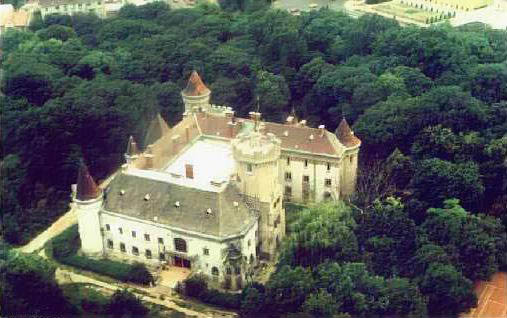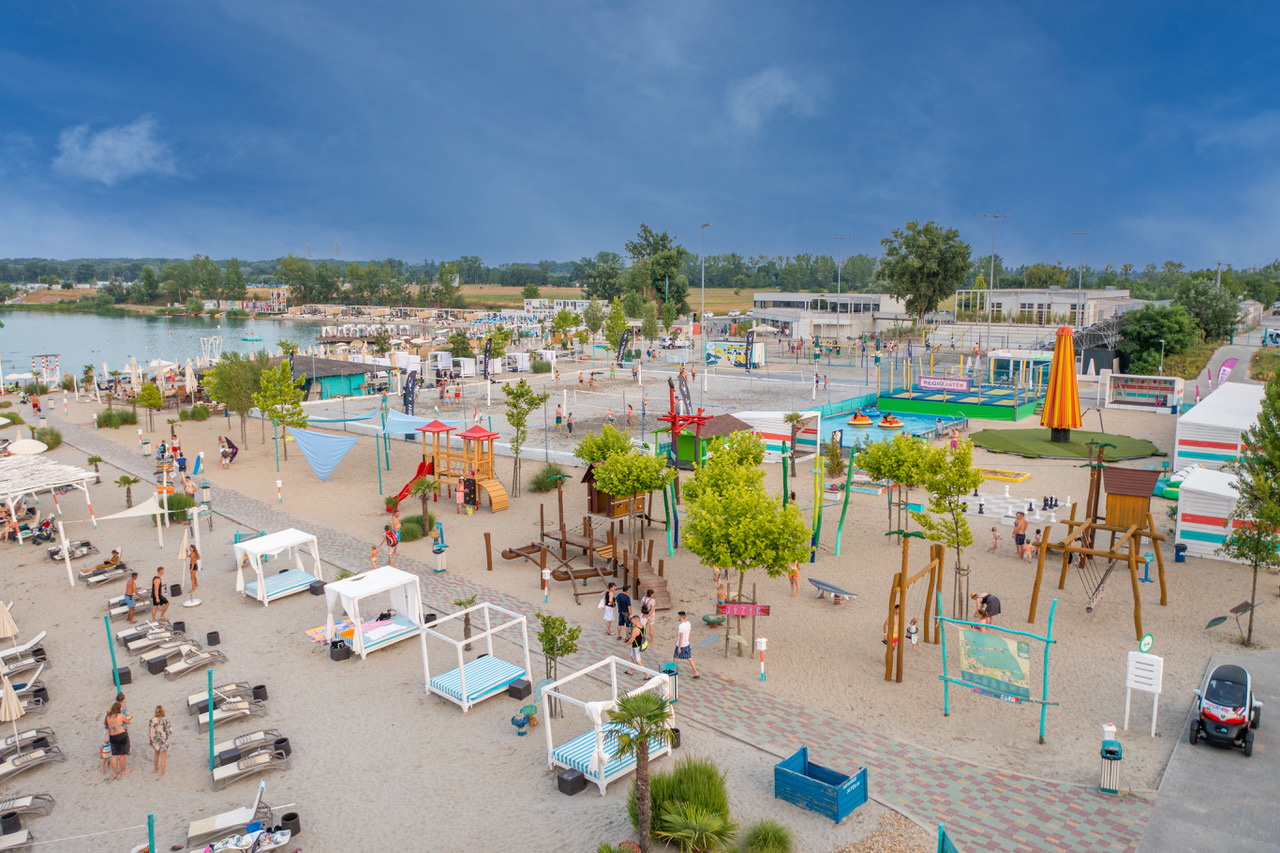Conquering the Hungarian castle estate market

It raises hackles in the real estate business that country manor houses have become so inexpensive in Hungary that one can buy one for the price of an average Budapest apartment. But what is the problem with them exactly? Why are they in such low demand? The Budapest Business Journal asked two chateau managers about their experiences in the niche market.
Prónay Castle of Alsópetény is the epitome of optimal re-utilization of a country estate in the hilly northern region of Hungary. Since 2011, it has been functioning as the conference center of P92 IT Solutions, a Hungarian IT company that employs 120 people – hence classifiable as a mid-size firm in Hungary today.
“József Molnár, the owner of the company began to ponder around 2008 that it would be a good idea for the company to purchase a piece of real estate,” explained Prónay manor house manager, “which would make it possible for the management to withdraw into safe seclusion with strategic clients if necessary.
“As P92 has steady partners such as Sony Music, the royalty calculation system of which has been developed by P92, or the Grass Roots Group Plc, P92 could easily afford the acquisition of this chateau,” she added.
It was clear from the start that events organized by the company itself would only take up a small proportion of the capacity of the chateau; its operation would have to make a profit by hosting outside events and organizations. “After conducting market research, we learned what requirements our future conference center would have to meet.” Tömösvári lists the criteria as follows: the place cannot be farther than an hour’s drive from Budapest (Alsópetény is 50 minutes from the capital city, and 40 minutes' drive from the airport); it has to be equipped with a conference room, and at least 20 single rooms for guests.
“The most important criterion, however, is exclusiveness,” the manager said. “It must be possible to separate the location from the outside world.”
The location consists of the main house built around 1750, a minor chateau constructed around 1820, and a former manor building which is now also under protection. During the decades of state socialism, the main chateau was given over to a number of roles – doctor’s office, a miners’ club, even a center for communist-era youth groups – and its physical condition deteriorated considerably.
“In the terrazzo of the minor chateau, a weaving factory was established. The machines were ruthlessly fastened to the marble floor; we have restored the floor to its original state,” Tömösvári said. “The reconstruction of the manor building into a modern bath house was awarded a Podmaniczky Prize.”
The largest amount of funding was received from the European Union. “We won HUF 52 million in the framework of the Northern Hungary Operative Program (ÉMOP). The half-finished complex, including the park, was bought for HUF 140 million by P92 in 2008. With the cost of renovation included, the purchase price still remained under HUF 1 billion,” Tömösvári points out. “If we manage to obtain more funding, our next goal will be the construction of new private clinic for ophthalmic surgery.”
Counting on a return
In terms of management, the Károlyi Castle at Fehérvárcsurgó in northwest Hungary is special because it is operated, though not owned, by a member of the family of Károlyi counts who once called it home, György Károlyi. “The cultural profile of the castle is organized by a non-profit foundation which is financed by a for-profit company spinning off the castle’s capacities in the hostelling industry,” Károlyi explained to the BBJ. “I picked up the knowhow of such financial constructs during my career in France,” he added.
The count, who left Hungary in 1947 as a child, gained ample experience in company management in Paris. He worked as a financial executive of Fiat’s French subsidiary from 1978 on. Since retiring from that position in 2005, he has devoted all his energies to the reconstruction and the worthy reutilization of the Fehérvárcsurgó castle. Over 15 years, HUF 1.5 billion has been spent on the reconstruction of the castle building and its 50-hectare park.
“One-third of this sum was provided as a long-term loan by Hungarian Development Bank. However, the precondition of the loan was that our foundation should obtain at least management rights for the sake of putting a mortgage on the estate,” Károlyi explained.
Another one-third of the investment comes from money sourced directly by the count, the bulk of which is the Károlyi family fortune, although some was gathered from donations such as the generous contribution provided by the Los Angeles-based Foundation Hungaria Nostra. “The final third of the investment came from subsidies, first provided by the Hungarian state, later from EU funds via the New Széchenyi Plan and KDOP projects.”
The József Károlyi Foundation, responsible for the cultural profile of the castle, organizes conferences on the spot related to Hungary’s reintegration into the mainstream of European modernity, like Hungary’s political transition or Hungarian horticulture. The Károlyi Foundation has been accepted as a full member of the European Assembly of Cultural Meeting Points, and been awarded with the emblem of UNESCO’s heritage program.
As far as the money making/spinning-off is concerned, hosting of conferences yields no income at all, quite the contrary, in fact. An annual gardening show attracts 10,000 visitors and more than 100 exhibitors who, of course, pay a participation fee. Three-quarters of the income are generated by special events organized by outside event planner.
The hotel business, on the other hand, creates major expenses as well: “We employ 20 local people, spending approximately 50% of our income on their salaries and social security,” Károlyi remarked. “For the time being, annual revenue of HUF 150 million does not cover expenses. We need to mobilize other resources for that.”
SUPPORT THE BUDAPEST BUSINESS JOURNAL
Producing journalism that is worthy of the name is a costly business. For 27 years, the publishers, editors and reporters of the Budapest Business Journal have striven to bring you business news that works, information that you can trust, that is factual, accurate and presented without fear or favor.
Newspaper organizations across the globe have struggled to find a business model that allows them to continue to excel, without compromising their ability to perform. Most recently, some have experimented with the idea of involving their most important stakeholders, their readers.
We would like to offer that same opportunity to our readers. We would like to invite you to help us deliver the quality business journalism you require. Hit our Support the BBJ button and you can choose the how much and how often you send us your contributions.




.jpg)

